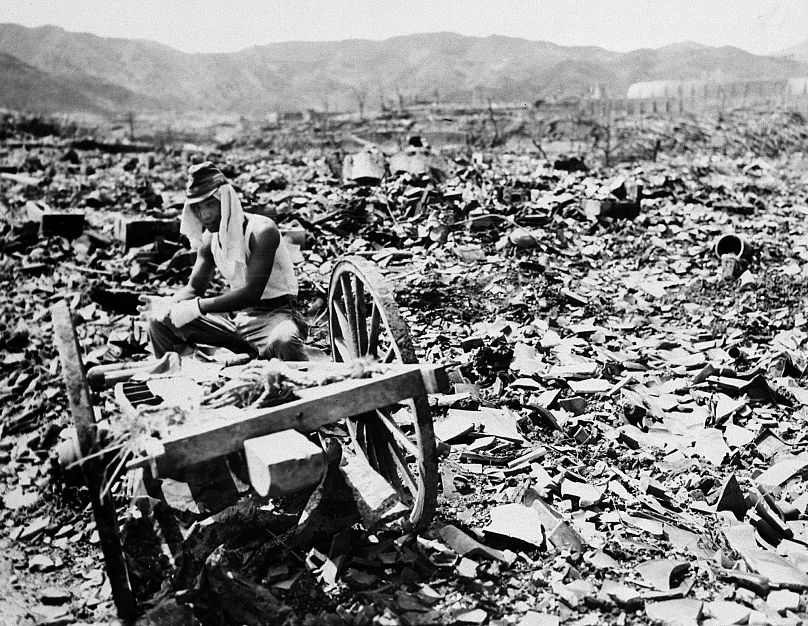The United States dropped its second atomic bomb on Nagasaki on 9 August 1945, three days after the first bombing of Hiroshima, together killing more than 210,000 people.
The mayor of Nagasaki has announced the city will invite representatives "of all countries" and regions to the peace memorial marking the 80th anniversary of the atomic bombing of the city.
The invitation to the 157 countries and regions that have diplomatic missions in Japan will include Russia, Belarus and Israel, who were excluded last year.
Mayor Shiro Suzuki said he wants all representatives to see the brutal consequences of atomic weapons use as a lesson at a time of growing divisions and conflicts.
The United States dropped its second atomic bomb on Nagasaki on 9 August 1945, three days after the first bombing of Hiroshima, together killing more than 210,000 people.
Japan surrendered on 15 August, ending World War II and its nearly half-century of aggression across Asia.
Suzuki said his city is returning to its "fundamental purpose" of the ceremony, to mourn the atomic bomb victims and pray for lasting world peace.
"We want to go beyond national borders, overcome ideological differences and any other divisions to have global representatives gather in Nagasaki," he said.
He added: "At a time of worsening divisions of the international society, I feel more strongly than ever about the importance for representatives of all countries to participate in the Nagasaki peace memorial and learn the atrocious and inhumane outcomes of the nuclear weapons use through their own eyes, ears and hearts."
Suzuki did not invite Israel to the 2024 anniversary, citing concern of "unforeseeable situations" such as violent protests over the war in Gaza disrupting the memorial.
But Israel's exclusion drew criticisms and boycott by ambassadors from the US and five other Group of Seven nations — Canada, France, Germany, Italy and the U.K. — and the European Union.
Russia and its ally Belarus have not been invited to the Nagasaki memorial event since 2022 following Moscow’s full-scale invasion of Ukraine.
Japan, despite being the world's only country to have suffered nuclear attacks, relies on the US nuclear umbrella and its “extended deterrence” amid growing tension in the region and supports atomic weapons possession for deterrence.












